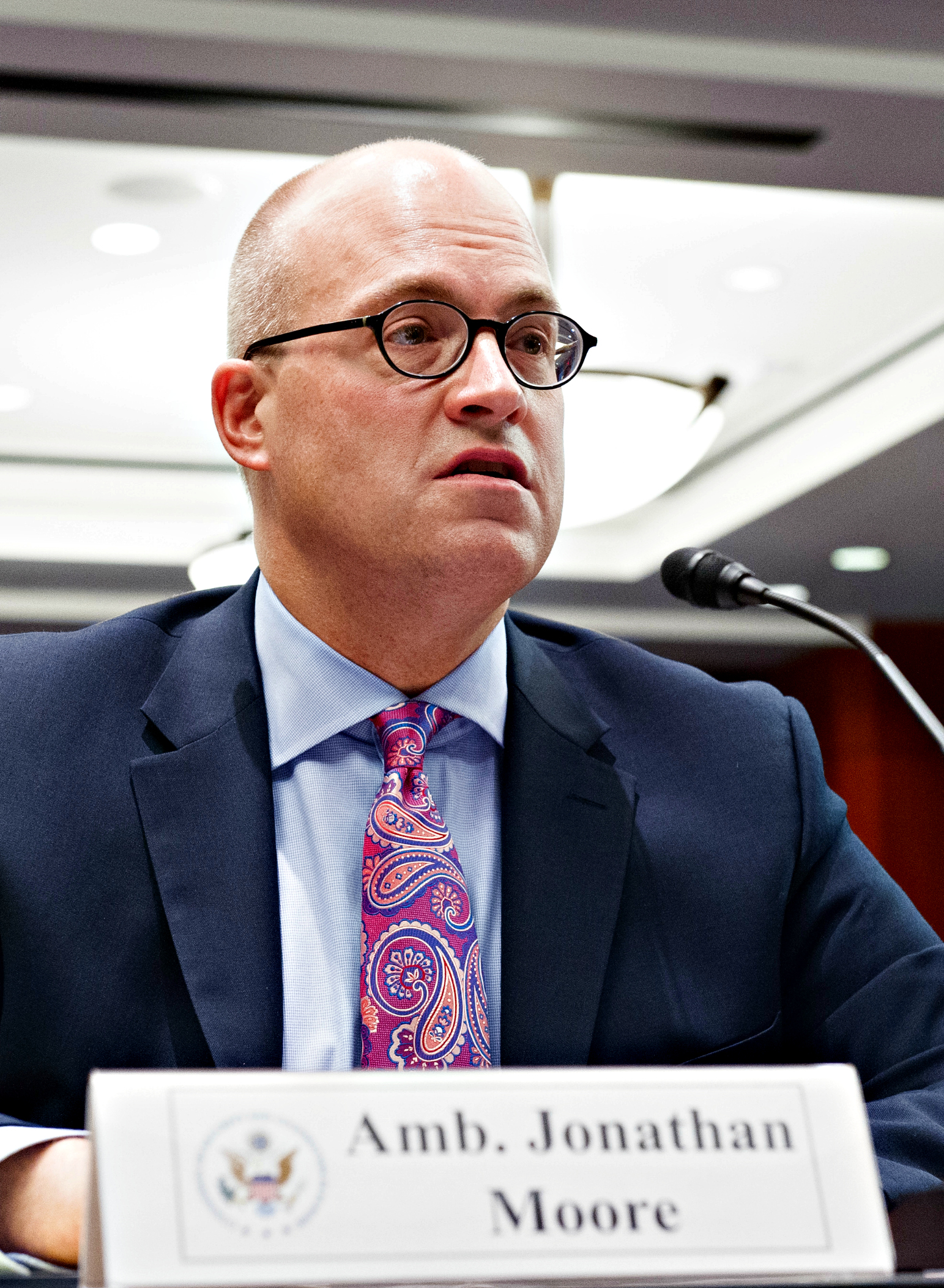Ambassador Jonathan Moore is the OSCE’s ambassador to Bosnia and Herzegovina, and has spent most of his career working on the Balkans. He testified at the Helsinki Commission’s May 25, 2016 hearing, “Combatting Corruption in Bosnia and Herzegovina.”
 Corruption is one of the biggest problems in Bosnia and Herzegovina, and Ambassador Moore is particularly concerned about its dire effects on young people.
Corruption is one of the biggest problems in Bosnia and Herzegovina, and Ambassador Moore is particularly concerned about its dire effects on young people.
“It’s an obstacle that drives young people out of the country and it keeps investors away,” he says. “Corruption needs to be combatted on all levels and I am very glad this hearing talked about it.”
He identifies part of the problem as lack of privatization, and notes that political patronage plays a significant role in public enterprises like schools and universities.
“There hasn’t been much privatization in Bosnia and Herzegovina,” he says. “Imagine you are a 14-year-old and you’re very smart and have great grades. You want to go to a certain kind of public high school—a gymnasium. Well, you might not get admitted unless you have the right kind of political connections. As a 14-year-old, you are not selected because you don’t have the right connections, or you’re not bribing the right people.”
The cycle continues at the stage of university applications; graduates seeking jobs in public enterprises continue to face the same challenge.
“Again, political patronage and political control,” he explains. “If you don’t fulfill the right criteria politically—it’s not about how smart you are—you don’t get the job you want. So it’s easier to say, ‘Enough,’ and leave. The bottom line is that politics is everything in Bosnia and Herzegovina, and that’s why I started and ended [my testimony] by saying all politics is local.”
Ambassador Moore argues very strongly for action at the local level, especially in the 143 municipalities around the country, each with its own mayor.
“In many of these cases, these mayors are very innovative and very perceptive,” he notes. “They’ve worked across religious and ethnic lines with their constituents, their fellow neighbors. Mayors don’t hide themselves off in offices in some capital city. They live there, they see these people every day who ask, ‘Why is the school falling apart?’ and say, ‘Fix the sidewalk,’ or ‘The sewer is backed up into my apartment building.’”
Ambassador Moore thinks it is important to shine a light on those local officials who have desegregated the schools and are speaking up for different ethnic communities.
“We have examples from the flood of 2014, where we saw [a mayor] who made sure that the resources went to all the victims and not just to his friends. Giving credit where credit is due to the positive examples, rather than just saying, ‘It’s a huge problem and nothing can be done,’ is of great merit.”
Ambassador Moore believes that it is important to understand the importance of investing in the security and stability of the international realm. Countries without conflict, including Bosnia, are safer, better trading partners, and are more conducive to developing the innovative skills of the young generation.
“When you have a country in this cycle of conflict, nobody has the time, resources, energy, or money to put ideas on the table in a positive way,” he says.






